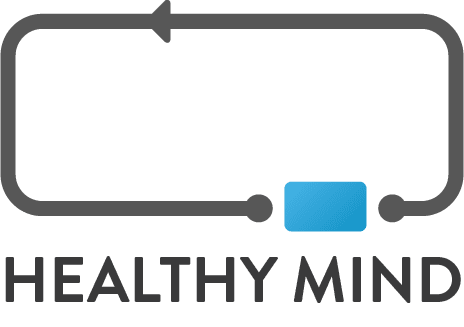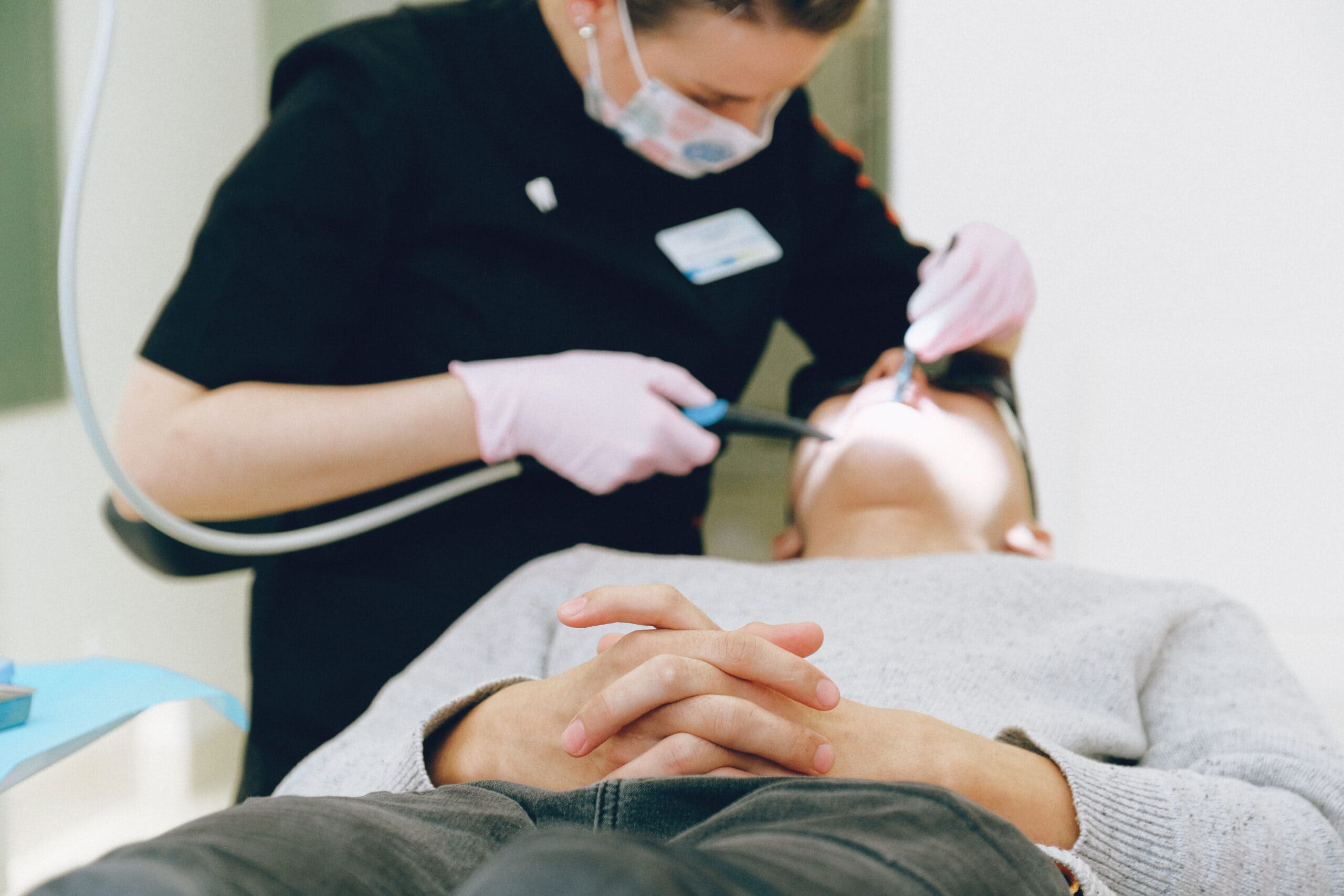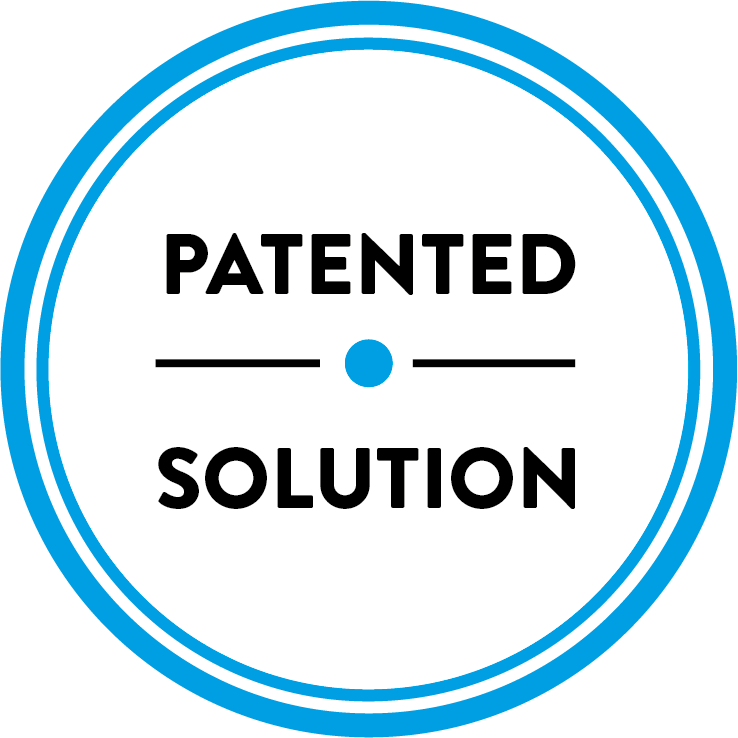Does your heart quicken at the sound of the dentist’s drill? You are probably like 33%* of French people who are afraid to go to the dentist then. The thought of pain often leads to cancellation or postponement of a medical appointment. However, neglecting your oral care increases the risk of developing cavities and gum disease, and even more serious infections. What causes this fear of the dentist and what techniques can be used to calm down before a visit? Find out more about the mechanisms of dentophobia and how to relieve it in this article.
Understanding the vicious circle of odontophobia
What causes anxiety during a dental visit?
There are many factors that can generate stress upon the approach of a medical consultation. The fear of the dentist is anchored in the collective unconscious with the image of the tooth puller or through pictorial and cinematographic works. However, dental techniques have evolved since the time when teeth were extracted in front of an audience during a theatrical performance and without anaesthetic. The drill has been abandoned in favour of quieter tools and advanced dental training.
The anticipation of pain remains the main vector of anxiety in dentistry. A traumatic dental history, especially in childhood, may have left an unpleasant memory. The senses also play a major role since the smell of products or the noise of instruments arouse negative emotions. Finally, the environment, with the waiting room, can contribute to a feeling of discomfort in a patient who is already alert and worried about the care to come.
How do patients’ anxieties about oral health care manifest themselves?
Fear of the dentist induces hormonal activation that stimulates some organs and inhibits others. Physiological signs include:
- increased heart rate;
- vasodilation and a rising blood pressure;
- muscle contraction;
- horripilation (hair on the skin stands up);
- slower digestion;
- better oxygenation which leads to increased alertness;
- dilation of the pupils;
- a relaxation of the smooth muscles and thus a reduction in the desire to urinate;
- an elevation in breathing rate and a dilation of the bronchi.
Body language also provides clues to your state of anxiety. The eyes, which conveys emotions, often reflect the apprehension felt in the chair. The facial expression is revealing, as are the hands that clutch the armrests. Sudden, sometimes uncontrolled, movements indicate a high degree of unease. Among the cognitive effects, hyperactivity, the inability to put procedures into perspective or the fact that the practitioner is bombarded with questions suggest anxiety. A shaky voice, stuttering or rapid speech also show detectable discomfort.
What are the consequences of a phobia of the dentist on oral hygiene?
Concerns about visiting the dentist’s office lead patients to postpone their appointments. However, these cancellations are not the result of optimal oral health. If actions are not taken to maintain the well-being of the teeth, problems can arise or worsen. A simple cavity can develop into toothache or an abscess.
Putting off care increases the aggravation of symptoms and treatments that focus on the pain rather than the cause, as well as self-medication. This vicious cycle was highlighted in the study exploring the links between dental hygiene and anxiety by Jason M. Armfield, Judy F. Stewart and A. John Spencer.
Moreover, negative emotions such as shame or guilt can paralyse the patient who has delayed visits. A damaged oral health thus becomes an additional reason for not pursuing care. S. M. Cohen, J. Fiske and J. T. Newton found that dental anxiety has a significant impact on daily life. As well as disrupting sleep, it can interfere with your social relationships at work and at home.
However, there are solutions to reduce anxiety-provoking stimuli and make you eager to visit your dentist!
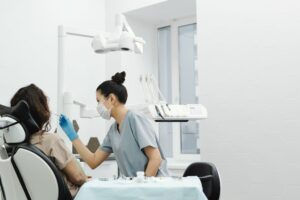
Defusing panic attacks: relaxation techniques to ease fear of the dentist
Using music therapy to relax in the operating chair
Sounds can be a source of tension or serenity. As we have seen, the dental setting can cause discomfort because of the noises that characterize it. In order to divert your attention from these notes, music therapy occupies the hearing to generate well-being.
Music has healing and soothing properties. Its impact on the listeners’ emotional state can lead to deep relaxation. The work of Maurice Gabai and Jacques Jost is revealing on the calming effect of auditory stimulation. In odontostomatology, this therapeutic approach makes sense in order to create a secure space and encourage tranquillity. As a victim of its intense emotional value, it lifts the barriers of verbal language and loosens muscular tension.
Practising hypnosis throughout the consultation with a dental surgeon
It was the Scottish doctor J. Braid who introduced the technique of hypnosis in France through the fixation of shiny objects in 1841. Its main application is hypnoanalgesia and developed in the middle of the 19th century. This state of conscious trance is achieved with the assistance of suggestions.
The patient, awake throughout the process, is invited by mental images and indications from the practitioner to relax. Your attention is then focused on your inner world and no longer on external stimuli. Dentists trained in hypnosis thus lead to an altered condition of consciousness in order to better experience oral care.
Try acupuncture to relieve nervous tension
Born of traditional Chinese medicine, acupuncture stimulates certain points on the body in order to restore the flow of energy. Needles are placed in specific locations to remove blockages and reinstate balance.
According to a study conducted by the European Journal of Integrative Medicine, acupuncture can treat dental anxiety. Researchers from the University of York in the UK analysed six therapeutic trials involving 800 patients. Using a point scale, they found a significant reduction in stress. Although further research is needed, these initial results show acupuncture to be a relevant support treatment for calming down and overcoming the fear of the dentist.
Using conscious sedation with MEOPA gas
The French Society of Anaesthesia and Resuscitation (SFAR) defines sedation as: “the use of medicinal or non-medicinal means intended to ensure the physical or psychic comfort of the patient and to facilitate care techniques”.
MEOPA (nitrogen monoxide-oxygen mixture) has been used in hospitals for several years, but its employment has been extended to private dental practices since 2010. Colourless, odourless and tasteless, it works by inhalation through a suitable nasal mask connected to a secure container. Its effects disappear within a few minutes once it is removed.
Also known as vigorous anaesthetic sedation, this form of relaxation has no side effects other than a tingling sensation or the desire to laugh. The use of MEOPA is not a substitute for local anaesthesia.
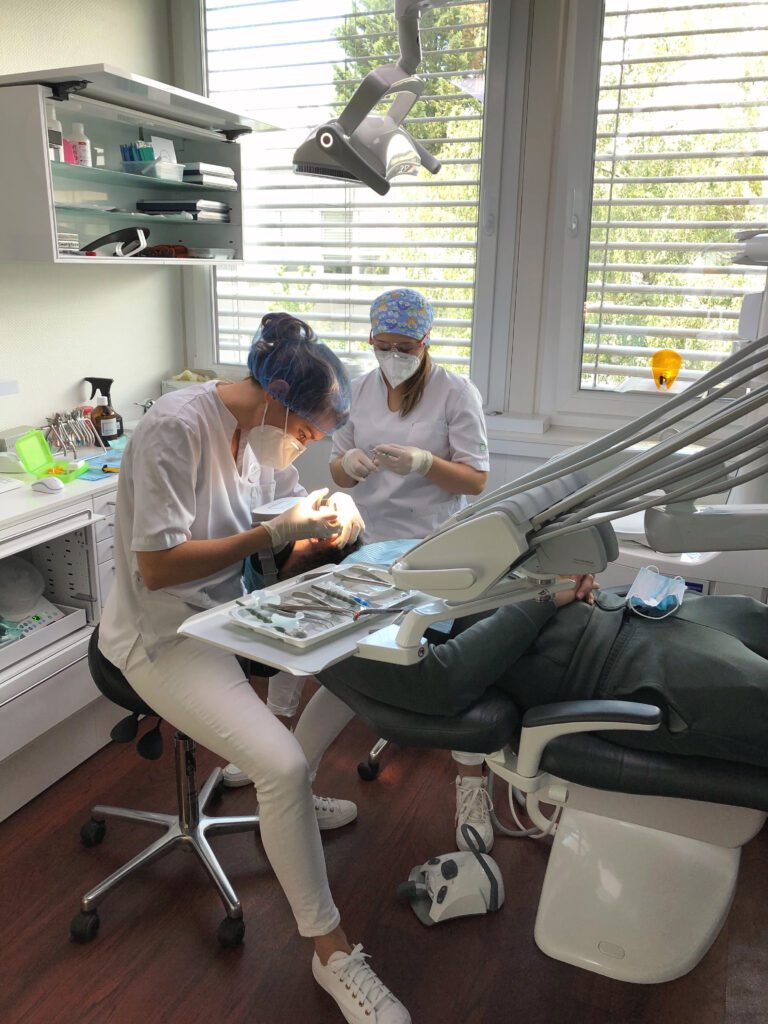
Discover virtual reality to stop being afraid of the dentist
Virtual reality (VR) links several principles that relieve anxiety for a tenfold effectiveness. Combined with the benefits of music therapy, hypnosis, breathing techniques and above all visual stimulation, the patient’s attention is diverted so that he or she unwinds. The application of VR in dentistry is particularly suitable for patients, as well as for health professionals, seeking to relax.
Immersed into a calm environment of your choice, you are accompanied throughout the consultation or operation. A study by Sarah Mahmoud Alshatrat, Rasha Alotaibi, Michele Sirois and Zain Malkawi even concludes that virtual reality has the potential to become the privileged method of pain management in the future.
The anxiety surrounding dental appointments leads many patients to neglect their care. In order to relieve and relax them, techniques have emerged in dental practices. Among them, virtual reality appears to be innovative, complete and efficient. Our medical solution could address common concerns and overcome the fear of the dentist in the long-term. To learn more about Healthy Mind’s device, feel free to contact us and request a demonstration of our VR headset.
Sources:
- * IFOP study (French Institute of Public Opinion), The French, the access to dental care and the coverage of dental prostheses, 2017;
- Jason M Armfield, Judy F Stewart, A John Spencer. The vicious cycle of dental fear: exploring the interplay between oral health, service utilization and dental fear, 2007;
- Floor M D Oosterink, Ad de Jongh, Irene H A Aartman. What are people afraid of during dental treatment? Anxiety-provoking capacity of 67 stimuli characteristic of the dental setting, 2008;
- S M Cohen, J Fiske, J T Newton. The impact of dental anxiety on daily living, 2000;
- Mounes Ghazel. Anxiety of adult patients in the dental office: origins, impacts and evaluation in a study in the CHU of Nice. Human Medicine and Pathology. 2020. dumas-02982019 ;
- Grégoire Touati. Fear of dental care: management of phobic patients. Sciences du Vivant [q-bio]. 2010. hal-01738755 ;
- Louna Monduc. Interest of virtual reality in the dental office for patients under stress: presentation of a clinical case. Life Sciences [q-bio]. 2020. dumas-02991840 ;
- Sabha Mahmoud Alshatrat, Rasha Alotaibi, Michele Sirois, Zain Malkawi. The use of immersive virtual reality for pain control during periodontal scaling and root planing procedures in dental hygiene clinic, 2019.
